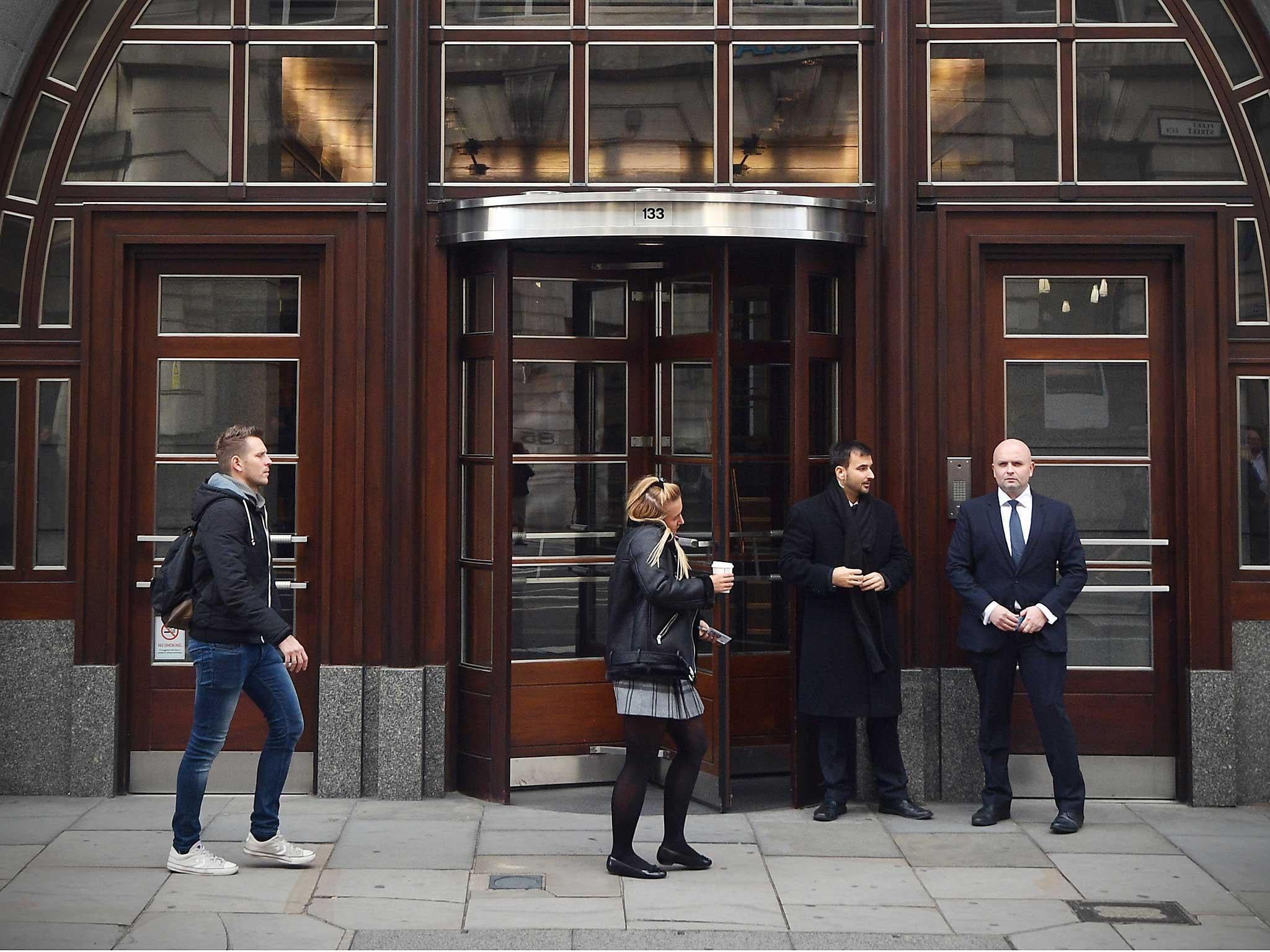Goldman Sachs boss urges long Brexit transition. He's right but is anyone listening?
Richard Gnodde, who runs Goldman Sachs International, is currently pouring money down a bottomless pit labelled "Brexit Contingency Plans"

Your support helps us to tell the story
From reproductive rights to climate change to Big Tech, The Independent is on the ground when the story is developing. Whether it's investigating the financials of Elon Musk's pro-Trump PAC or producing our latest documentary, 'The A Word', which shines a light on the American women fighting for reproductive rights, we know how important it is to parse out the facts from the messaging.
At such a critical moment in US history, we need reporters on the ground. Your donation allows us to keep sending journalists to speak to both sides of the story.
The Independent is trusted by Americans across the entire political spectrum. And unlike many other quality news outlets, we choose not to lock Americans out of our reporting and analysis with paywalls. We believe quality journalism should be available to everyone, paid for by those who can afford it.
Your support makes all the difference.I’ve no fondness for wealthy bankers, but that doesn’t mean to say they aren’t sometimes right.
An example of that is Goldman Sachs International chief executive Richard Gnodde, who has just entered the Brexit debate to urge a “significant” transition period.
Mr Gnodde is currently pouring money down a bottomless pit labelled “Brexit Contingency Plans”.
There aren’t many Britons who will feel all that much sympathy for him over that. That money pit will mean less is available for the bonuses he and his colleagues are so fond of. So tough luck.
Trouble is, his masters in New York won’t see it that way. They will eventually say that’s enough of that, start moving your people over to Frankfurt.
Actually, the process has already begun. Some jobs are moving over to Germany. Still more are simply staying in New York, which, for all the scrambling being done by Frankfurt, and Paris, and Dublin, has quietly become the biggest winner from this whole sorry affair.
There are many who would shrug some more. What do we lose by inconveniencing a few thousand wealthy bankers anyway. They don’t exactly contribute much to society.
Well, they pay a lot of tax for starters. It’s also true that they should pay more. But that’s just another debate.
Despite that, I have for years argued that London’s financial centre has played too central a role in the nation’s economy, and that it would be a good idea for the Government to pursue a more balanced economic approach rather than coddling it (as it did until recently).
The trouble is it is now happening at a dangerously fast pace and it is impossible to see, as things stand, quite what is going to replace those tax revenues, which contribute to things like the NHS, schools, roads without potholes, and any number of other things. There are also a lot of support staff who work for banks like Goldman in the City. They’re not rich, by any means, and they’re unlikely to be able to move like the bankers so they’ll just lose their jobs.
If it’s unpalatable hearing about this from Mr Gnodde - as it will be to an awful lot of people - consider also that the CBI has said much the same thing as have most sensible, and even semi-sensible, businesses both in the square mile of the City of London and beyond.
Even Andrew Bailey, the boss of the Financial Conduct Authority, and no political actor, has urged the Government to set out its position.
The trouble is, that there isn’t much evidence that it has one and there is now a very real danger that Britain will sail off into the North Sea without any sort of deal - which is what some of the Conservative Party’s Brexiteer fundamentalists are quietly hopping for.
That is a prospect that scares businesses witless. They’re hardly alone in that. But, it seems, division married to madness stalks the corridors of Westminster with the Prime Minister reducing to calling out “ra ra Britain” as a substitute for policy.
The problem for Theresa May is, as Kenneth Clarke told Bloomberg, that her party is “hopelessly split”. Hence the drift, which plays into the hands of a small corps of wreckers.
Meanwhile the economy is slowing, and is set to continue to do so. The latest figures on the budget deficit look awful. Fed up of austerity? You ain’t seen nothing yet.
Mr Gnodde will be fine. He’s a wealthy banker. He probably doesn’t love the idea of moving to Frankfurt (who does?) but he’ll wear it if he has to.
The rest of us aren’t so lucky. To prevent the worst case scenario it does rather require people like Mr Clarke to do more than just talk. They have to act. Now would be a good time to start.
Subscribe to Independent Premium to bookmark this article
Want to bookmark your favourite articles and stories to read or reference later? Start your Independent Premium subscription today.
Join our commenting forum
Join thought-provoking conversations, follow other Independent readers and see their replies
Comments